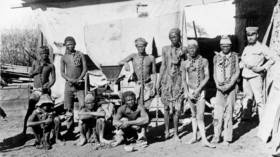EU state seeks to provide compensation for slavery

Portugal accepts full responsibility for crimes committed during the colonial and transatlantic slavery eras and must offer reparations for the mistakes of the past, President Marcelo Rebelo de Sousa said on Tuesday.
Rebelo de Sousa made the statement at a dinner event with foreign reporters in Portugal, according to multiple news outlets.
“We have to pay the costs. Are there actions that were not punished [where] those responsible were not arrested? Are there goods that were looted and were not returned? Let’s see how we can repair this,” Rebelo de Sousa said.
Portugal is widely thought to have been the first European nation to play a significant role in slave trading in the 15th century, according to historians. The southern European nation brought more enslaved Africans across the Atlantic Ocean than any other country during the colonial era — nearly half of the 12.5 million who were forcibly removed from their homeland and brought to the Americas.
Between the 15th and 19th centuries more than two million Africans are believed to have died on the journey to the Americas, where slaves were then forced to work on plantations.
African and Caribbean governments and activists have long demanded monetary compensation and other forms of accountability for slavery and colonization in their respective countries.
Last year, the Portuguese President proposed that Lisbon should formally apologize for its role in the transatlantic slave trade, which the UN has labeled as the largest forced migration in history. The country, however, stopped short of a full apology.
On Tuesday, Rebelo de Sousa insisted that merely apologizing for past wrongs is not enough.
“Apologizing is sometimes the easiest thing to do; you apologize, turn your back, and the job is done. No, it’s taking responsibility for the future of what we did, good and bad, in the past,” he said, according to The Portugal News.
Brazil, a former Portuguese colony where most of the estimated 5.8 million trafficked Africans were sent, announced plans to offer technology and industrial and agricultural assistance as reparations to African countries last year.













